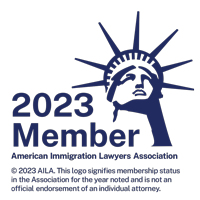USCIS has begun accepting provisional hardship waiver applications. This is a significant development for many people that removes much of the risk from the existing process of trying to legalize their status. In short, persons who entered the county unlawfully and who have a U.S. citizen spouse or parent can now submit their “extreme hardship waiver” to USCIS before they have to leave the country. Previously, hardship waivers could only be filed after the person had departed the United States. Because hardship waivers typically take as long as a year or more to be adjudicated, families were separated for long periods of time. Now families can remain together in the U.S. while the decision is made on their hardship waiver. Note that a departure from the U.S. is still required under this process. Now, however, if the provisional hardship waiver is approved, the time outside of the U.S. should be significantly reduced–perhaps as little as two weeks. Note also that the “extreme hardship” standard has not changed. The U.S. spouse or parent still has to demonstrate that they will suffer “extreme hardship” in the event the waiver is not granted. The other big effect of the provisional hardship waiver is that it removes much of the risk from the waiver process. Previously, persons had to essentially deport themselves back to their country without knowing if their waiver would be approved. With an approved provisional waiver, persons can now depart the U.S. with the knowledge that their waiver has already been approved and, if no other eligibility issues besides unlawful presence are involved, that they can successfully return to the U.S. with a lawful status.
Call: (865) 470-0788
Contact Us For Help! Contáctenos para obtener ayuda!
IMMIGRATION SERVICES
IMMIGRATION NEWS
- Homeland Security announces extension and redesignation of Venezuela for temporary protected status.
- DHS Modernizes Cuban and Haitian Family Reunification Parole Processes
- Temporary Protected Status Designated Country: El Salvador
- Immigration Services Suspended In-Person Services Until June 4
- Public Charge Ground of Inadmissibility
- Application of Expedited Removal Expands under Trump Administration
TOPICS
1966 Act
action for parents of americans
advance parole
American Opportunity Tax Credit
application
Child Tax Credit
court decision
Covid-19
Covid19
cuban
daca
dapa
deadline
dry foot
E-Verify
EB-5
Entrepreneurs
executive orders
fee
fiance
Foreign
h-1b
homeland security
imm
Immigration Reform Updates
International
Investment Visa
IRS
ITIN
N-400
N-600
naturalization
parole
process
program
provisional
restrictions
TEA
Trump
unlawful presence
USCIS
visa
visa waiver
waiver
wet foot
Categories

